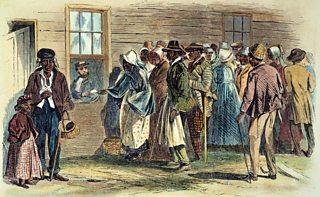Hillary Rodham Clinton's Thesis (Overview)
In 1969, Hillary Rodham wrote a 92-page senior thesis for Wellesley College about the views advocated by community organizer Saul Alinsky, titled "There Is Only the Fight . . . ": An Analysis of the Alinsky Model.
While the work by Rodham as a college student was the subject of much speculation in articles and biographies of Hillary Rodham Clinton in the 1990s, access to the thesis was limited by the college, at the request of the Clinton White House, during her time as First Lady of the United States
Rodham researched the thesis by interviewing Alinsky and others, and by conducting visits to low-income areas of Chicago (nearby to her hometown, Park Ridge, Illinois) and observing Community Action Programs in those areas. Her thesis adviser was Wellesley professor of political science Alan Schechter.
The thesis was sympathetic to Alinsky's critiques of government antipoverty programs, but criticized Alinsky's methods as largely ineffective, all the while describing Alinsky's personality as appealing. The thesis sought to fit Alinsky into a line of American social activists, including Eugene V. Debs, Martin Luther King Jr., and Walt Whitman. The thesis concluded that "[Alinsky's] power/conflict model is rendered inapplicable by existing social conflicts" and that Alinsky's model had not expanded nationally due to "the anachronistic nature of small autonomous conflict".
A 2007 review in The New York Times summarized Rodham's thesis as follows: "Ms. Rodham endorsed Mr. Alinsky's central critique of government antipoverty programs—that they tended to be too top-down and removed from the wishes of individuals. But the student leader split with Mr. Alinsky over a central point. He vowed to 'rub raw the sores of discontent' and compel action through agitation. This, she believed, ran counter to the notion of change within the system." In 2016, reporter Michael Kruse quotes the thesis and describes a centrist theme:
In the acknowledgements and end notes of the thesis, Rodham thanked Alinsky for two interviews and a job offer. She declined the latter, saying that "after spending a year trying to make sense out of [Alinsky's] inconsistency, I need three years of legal rigor." The thesis was praised by all four of its reviewers and Rodham, an honors student at Wellesley, received an A grade on it.



Comments
Post a Comment